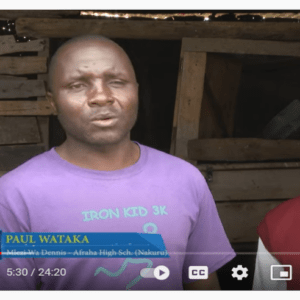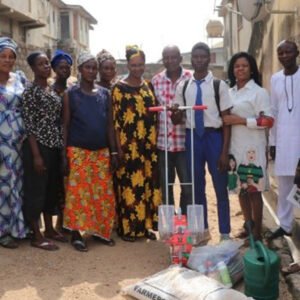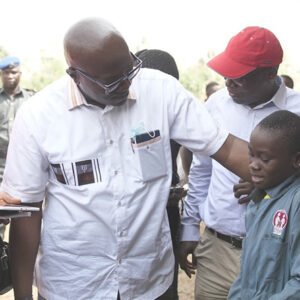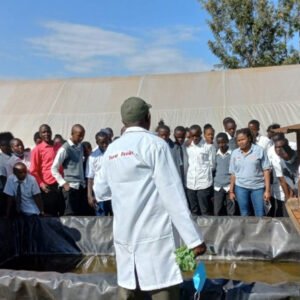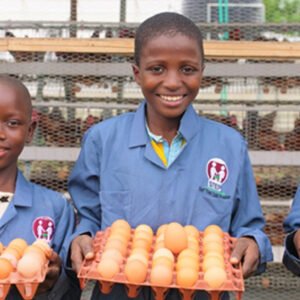STEP agribusiness model is the FUTURE
After the successful introduction of STEP’s agribusiness model to 1,197 students in 10 schools at the program’s inception in 2019, it has been extended to over 5,000 more students (55% female) and 312 teachers, in 50 schools and established over 180 school pilot enterprises and over 20 home agribusinesses (student-managed).
The agribusiness model has also gained the attention of both national and international stakeholders, to expand to more secondary schools. Many students, especially those in rural communities, find it challenging to complete their secondary education, majorly due to lack of sponsorship. In DR Congo, the program has changed the narrative for over 200 STEP club students who have used the funds generated from their schools and individual enterprises to cater for some of their academic expenses such as school fees.

In Kenya, many of the students have started their home agribusinesses with their personal savings and parents’ support, even before the completion of their secondary school education. In Nigeria and DR Congo, some of the students remain committed to continue in agriculture, even those advancing to the university level.
Impact by the numbers

Stories from the field
STEP Kenya Participates at the Nakuru National Agricultural Show
The annual Nakuru National Agricultural Show made a comeback...
Afraha Secondary School featured in Project 254
The STEP Club at Afraha Secondary School was featured...
STEP-Oyo empowers outstanding students with starter tool kits
The STEP-Oyo Project has empowered 25 outstanding students in...
DR Congo President, Tshisekedi, shows interest in STEP, sends Special Envoy
Having initiated a partnership with the International Institute of...
Bathi students visit Wambugu Farm
In Kenya, Year 1 and 2 STEP students from...
STEP beneficiaries run viable agribusiness ventures in the communities
Beneficiaries of the Start Them Early Program (STEP) are...


